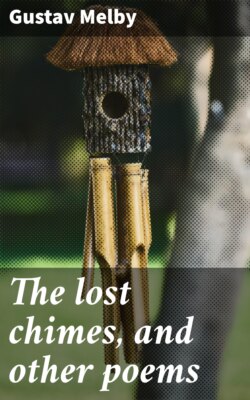Читать книгу The lost chimes, and other poems - Gustav Melby - Страница 13
На сайте Литреса книга снята с продажи.
XVII
ОглавлениеTable of Contents
A Catholic he was and had his passport,
And did not fear to take a ship for London,
Though rumor owned it, things were lively there,
And travellers had better take a care,
Where “Bloody Mary” ruled with fierce abandon,
Suspecting strangers to be of the base sort.
The base sort being chiefly protestant,
Or sympathizers with the cause of Cranmer;
And since he was not either, he might venture
To see the city without fearing censure,
And so, at last, he started out to wander
Through Germany, whose scenes did him enchant.
At last he reached the port of old Calais,
And bought a passage ’cross the English Channel,
According as the angel had him bidden,
Believing that his chimes were used or hidden
In London town, where back of pane or panel
He’d seek and find them on some happy day.
Now as the wind bore gently ’gainst the sail,
And slowly eked their distance from the shore,
The western sun lay ruddy on the wave,
His dream thereby made real, all things, save
The one whose face his heart did still adore,
She was not there this pilgrim strange to hail.
Upon him fell a sadness, which alone
The homeless, longing traveller doth know,
Augmented by a disappointed love,
And standing musing at the vessel’s prow,
The only thing his wistful vision saw,
Was that red glow which on the water shone.
He stood there when the evening shadows fell,
And darkening storm-clouds rose o’er England’s coast,
He stood there when the night closed from his view
The shores of France, within the deepest blue,
Through which a glim’ring light, the uttermost,
Was smiling him a dubious farewell.
He stood there when the waves began to roll,
The wind to sigh and whine in sail and rope,
And night closed round him with forebodings dark
Of dangers for the rocking little bark,
On which full many souls now stayed their hope,
That it would bear them to their journey’s goal.
But he feared not, no, rather pleasure found
In the arising fury of the deep,
Since it expressed the sorrow of his soul,
And he did hear its wild alluring call,
Into its mystic rest at once to leap,
A rest beneath the billows’ angry sound.
And now the elements did more and more
Unstop their many-voiced organ-keys:
The thunder’s loud diapason, the shriek
Of wailing wind, the flopping and the creak
Of rigging; and the rain upon the seas,
The lightning’s hiss and surging water’s roar.
But all of this his heart enjoyed with glee,
And he refused to leave his lonely post,
Though drenched, and clinging to the vessel’s railing,
A good old ship, though sorely tried, yet sailing,
It was her sturdy captain’s boast,
That she could weather even the roughest sea.
Sordino heard in all the symphony
Of nature’s stormy mood, the misery
And rage pent up in her great heart, like his,
Thus all its terror was to him a bliss,
He heard in it majestic melody,
Since all God’s universe is harmony.
The wind grew chilly and at last him drove
Into the hold, where slumber soon him claimed;
And when the morning dawned, the ship was near
The cliffs of England; this a grateful tear
Brought from the anxious hearts, which almost shamed
Sordino whom this sight left quite unmoved.
